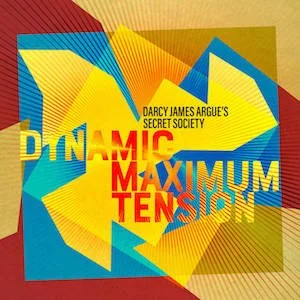Label: Out of Your Head Records, 2025
Personnel - Angela Morris: tenor saxophone, flute, conduction; Anna Webber: tenor saxophone, flute, conduction; Jay Rattman: alto and soprano saxophones, clarinet, flute; Charlotte Greve: alto saxophone, flute, clarinet; Adam Schneit: tenor saxophone, clarinet; Lisa Parrott: baritone saxophone, bass clarinet; Nolan Tsang: trumpet; Ryan Easter: trumpet; Jake Henry: trumpet; Kenny Warren; trumpet; Tim Vaughn: trombone; Zekkereya El-magharbel: trombone; Jen Baker: trombone; Reginald Chapman: trombone; Yuhan Su: vibraphone; Dustin Carlson: guitar; Marta Sánchez: piano; Adam Hopkins: bass; Jeff Davis: drums.
Tenorists, flutists, and composers Anna Webber and Angela Morris return with their co-led 19-piece big band, taking listeners on an imaginative journey through their creative lens. Unseparate, their second album in five years, showcases a viscerally contemporary sonic palette that reaffirms their adventurous yet cohesive orchestral brilliance. Building on the promise of their debut Both Are True, this new outing is even more assured—filled with bright ideas, expressive tonal textures, and rich harmonic depth that epitomize their progressive aesthetic.
The album opens with Webber’s four-part Just Intonation suite for big band. “Unseparate 1” casts long, deep wavelengths into perceptual focus; “Pulse” bursts forth with kinetic energy, its counterpoint and electronic music-inspired pulse framing a trumpet duel between Brian Easter and Nolan Tsang, as well as vibraphonist Yuhan Su’s graceful melodic touch. “Timbre” sets the leaders’ saxophones in motion, with Morris stepping into the spotlight over a carefully woven tapestry that grows ever more radiant. “Metaphor” follows with a blend of yearning and resolution, highlighted by Tim Vaughan’s magnetic trombone solo and deft trumpet interjections. The piece escalates into delicious cacophony before Su ushers in a glowing, timbrally rich new cycle.
Morris’ “Mist/Missed” begins broodingly, with drones, counterpoint, and striking rhythmic accentuations that culminate in a bustling conclusion. Webber’s “Unseparate 3” takes a more direct path—melodically and harmonically accessible, yet full of vivid color, particularly in Charlotte Greve’s luminous alto improvisation. Morris’ “Microchimera”, inspired by parent-child connections, soothes the soul through an enveloping sound bubble that breathes deeply. Its nuanced rhythmic design, ingenious horn writing, and innovative spirit stand out, evolving through dynamic sections that feature guitar and vibraphone together, and then flute (a stunning turn from Webber) and piano. This is followed by deep drone infusion and rigorous counterpoint.
The thrills don’t stop here, and both Morris’ inventive “Habitual”—featuring Marta Sanchez on piano and Lisa Parrott on baritone sax—and Webber’s punchy, starkly contrapuntal “Spur 7: Metamorphosis”—with solos from bassist Adam Hopkins, altoist Jay Rattman, and guitarist Dustin Carlson—takes us to radical joy.
Unconventional, gripping, and consistently inspired, Unseparate surpasses the duo’s previous big band outing, pushing boundaries while deepening the success of their remarkable collaboration.
Favorite Tracks:
02 - Pulse ► 04 - Metaphor ► 05 - Mist/Missed ► 07 - Microchimera














